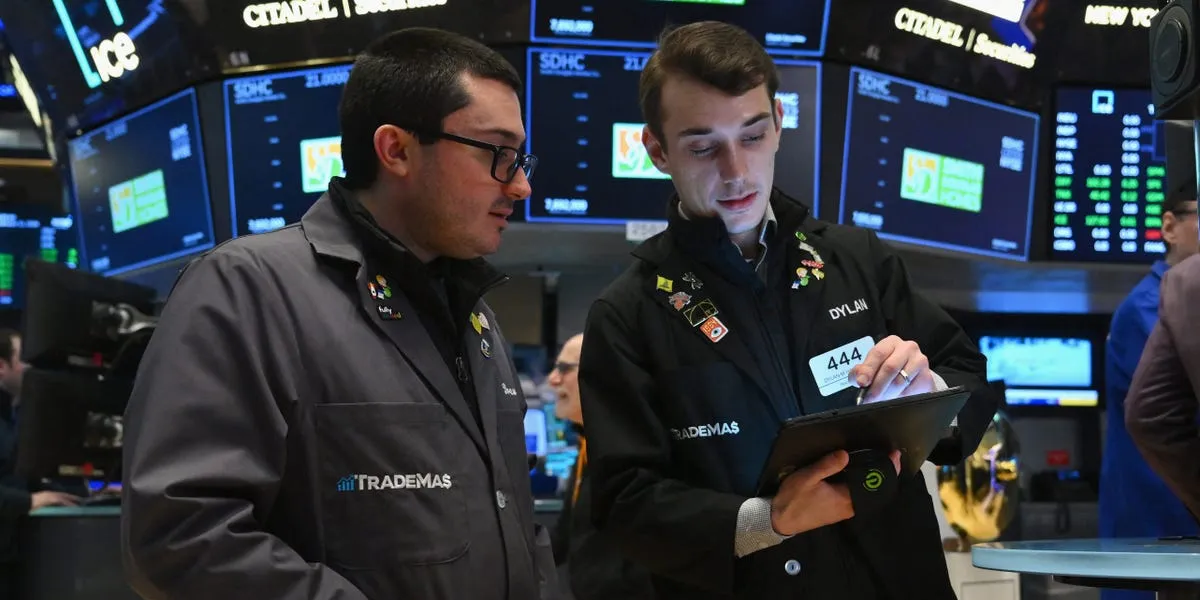The U.S Stock Market Reaches a New Record as Trump Reaches a Deal With Japan
Global stock markets extended their record-breaking rally after the U.S. finalized a trade agreement with Japan, easing fears of a prolonged tariff dispute. The deal brought renewed optimism to investors just as Wall Street braces for earnings reports from major U.S. tech companies.
Futures tied to the S&P 500 gained 0.3% following Tuesday’s record close. In Europe, the Stoxx 600 index surged 1%, fueled by a sharp rise in automobile shares amid growing optimism that the European Union could strike a similar trade pact with the U.S. Over in Asia, Japan’s Topix Index jumped as much as 3.6%, while shares of Toyota Motor Corp. soared, posting their biggest single-day gain since 1987.
The renewed momentum in global equities comes after a rocky period in April, when markets pulled back on concerns that rising trade tensions could hurt corporate earnings and economic growth.
Those fears have eased in recent weeks as countries appear increasingly willing to reach deals with Washington ahead of a key August 1 deadline. The anticipation of continued trade cooperation has sparked a broad market rally and fueled hope that the worst of the global trade conflicts may be behind us.
On Wednesday, investors were watching for quarterly results from Tesla Inc. and Alphabet Inc., which are expected to offer deeper insight into the health of the technology sector and consumer demand.
According to Christophe Boucher, Chief Investment Officer at ABN Amro IS, the current market tone is risk-on. “Tech earnings could either add more fuel to this rally or cause a pause, depending on the outcome,” he said.
The so-called “Magnificent Seven” tech giants are in the spotlight this earnings season. Their influence over the broader market has grown significantly, and expectations for them are high. While the group paused its nine-day winning streak on Tuesday, analysts expect the seven companies to report a collective 14% increase in second-quarter profits. In contrast, earnings for the rest of the S&P 500 are projected to remain flat, according to Bloomberg Intelligence.
The U.S.-Japan trade agreement marks a significant turning point. After months of speculation and uncertainty, the new framework offers clearer guidelines on tariffs and trade relationships. Under the deal, Japanese imports into the U.S., including automobiles—by far the largest component of the trade imbalance—will be subject to a 15% tariff.
The U.S. also reached a similar trade agreement with the Philippines, imposing a 19% tariff on its exports. This news lifted investor sentiment in the region, pushing Manila’s stock index up 1%. Phillip Wool, head of portfolio management at Rayliant Global Advisors Ltd., commented on the broader trade strategy. “Washington’s current objective appears to be announcing headline trade agreements that allow both countries to claim success while sidestepping the economic risks of a full-blown trade war,” he said.
In Japan, political developments added to market volatility. The yen seesawed after Prime Minister Shigeru Ishiba denied rumors that he planned to resign. Speculation had intensified following his coalition’s poor performance in Sunday’s upper house elections, where it failed to secure a majority.
Adding to the uncertainty, an auction of 40-year Japanese government bonds received weak demand, marking the lowest bid-to-cover ratio since 2011. The sale was closely watched by investors as a measure of appetite for long-term Japanese debt, especially in the wake of political instability and higher borrowing needs.
Following the auction, Japan’s 10-year government bond yield rose to its highest level since 2008, reflecting increased concerns over long-term fiscal policy and the market’s willingness to absorb additional debt.
Despite these regional concerns, global markets remain focused on the trade outlook and corporate earnings. The latest agreements appear to be a turning point for global trade dynamics, offering a clearer path forward after years of friction. Investors are now watching to see if the positive momentum can continue through earnings season and into the third quarter.
Overall, the alignment of easing trade tensions, political developments, and corporate earnings reports has created a potent mix of market-moving news. For now, investor sentiment remains upbeat as hopes for global economic stability return to the forefront.

Subscribe to our newsletter!
As a leading independent research provider, TradeAlgo keeps you connected from anywhere.








